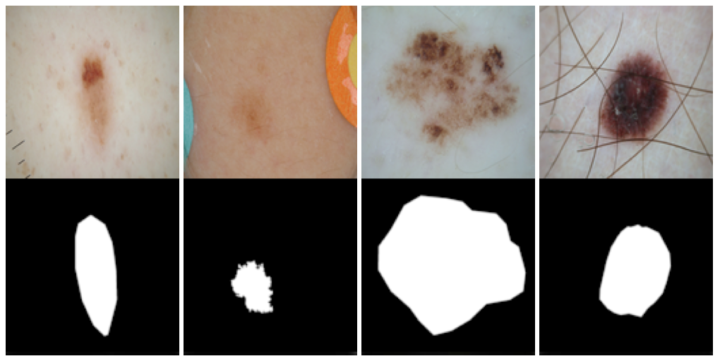ISIC 2018: Skin Lesion Analysis Towards Melanoma Detection - Task 1
Task 1: Lesion Boundary Segmentation
 Capitation example
Capitation example
Aim
Submit automated predictions of lesion segmentation boundaries within dermoscopic images.
Background
Skin cancer is the most common cancer globally, with melanoma being the most deadly form. Dermoscopy is a skin imaging modality that has demonstrated improvement for diagnosis of skin cancer compared to unaided visual inspection. However, clinicians should receive adequate training for those improvements to be realized. In order to make expertise more widely available, the International Skin Imaging Collaboration (ISIC) has developed the ISIC Archive, an international repository of dermoscopic images, for both the purposes of clinical training, and for supporting technical research toward automated algorithmic analysis by hosting the ISIC Challenges.
Results
